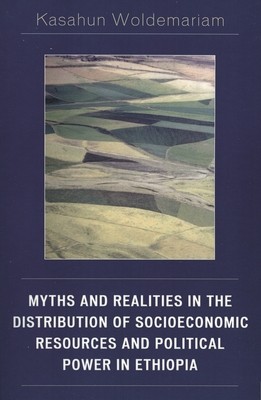
- We will send in 10–14 business days.
- Author: Kasahun Woldemariam
- Publisher: University Press of America
- ISBN-10: 0761833609
- ISBN-13: 9780761833604
- Format: 16.2 x 22.9 x 2.2 cm, softcover
- Language: English
- SAVE -10% with code: EXTRA
Myths and Realities in the Distribution of Socioeconomic Resources and Political Power in Ethiopia (e-book) (used book) | bookbook.eu
Reviews
Description
More often than not, the distribution of socioeconomic resources and political power in Ethiopia has been perceived in favor of the Amhara ethnic group. As a result, efforts to help the minority ethnic groups were supported by the invocation of subjective cultural attributes and sometimes, the manufacture of common historical experiences. After the collapse of the military regime, the present regime's misguided and divisive strategies sought to rectify what it believed to be a historically distorted distribution of resources and power in Ethiopia. This strategy led to the division of the country into "ethnic Bantustans" and hindered any real move towards development, democracy, and conflict resolution in Ethiopia. In this new work, author Kasahun Woldemariam argues that the Amhara were as excluded economically and politically as any other ethnic group in Ethiopia, and that the concept of Amhara domination is a myth. Working from an interdisciplinary theoretical and methodological approach, this book includes over twenty figures and tables on the regional distribution of revenue and expenditure, health and education, manufacturing industries, and parliamentary elections. It is an important resource for scholars and students of African politics and ethnic conflict analysis and resolution as well as policymakers worldwide and Ethiopians in Ethiopia and the Diaspora.
EXTRA 10 % discount with code: EXTRA
The promotion ends in 13d.19:46:52
The discount code is valid when purchasing from 10 €. Discounts do not stack.
- Author: Kasahun Woldemariam
- Publisher: University Press of America
- ISBN-10: 0761833609
- ISBN-13: 9780761833604
- Format: 16.2 x 22.9 x 2.2 cm, softcover
- Language: English English
More often than not, the distribution of socioeconomic resources and political power in Ethiopia has been perceived in favor of the Amhara ethnic group. As a result, efforts to help the minority ethnic groups were supported by the invocation of subjective cultural attributes and sometimes, the manufacture of common historical experiences. After the collapse of the military regime, the present regime's misguided and divisive strategies sought to rectify what it believed to be a historically distorted distribution of resources and power in Ethiopia. This strategy led to the division of the country into "ethnic Bantustans" and hindered any real move towards development, democracy, and conflict resolution in Ethiopia. In this new work, author Kasahun Woldemariam argues that the Amhara were as excluded economically and politically as any other ethnic group in Ethiopia, and that the concept of Amhara domination is a myth. Working from an interdisciplinary theoretical and methodological approach, this book includes over twenty figures and tables on the regional distribution of revenue and expenditure, health and education, manufacturing industries, and parliamentary elections. It is an important resource for scholars and students of African politics and ethnic conflict analysis and resolution as well as policymakers worldwide and Ethiopians in Ethiopia and the Diaspora.


Reviews